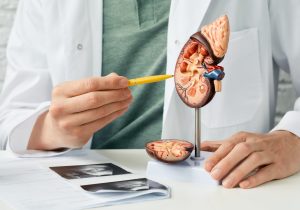Gastroesophageal reflux disease (GERD) is a common gastrointestinal condition affecting millions of people worldwide.
This article sheds light on GERD, its causes, symptoms, and treatments, with a special focus on the Asian population. Get ready to explore the world of GERD and learn how to manage this uncomfortable condition.
The Heart of the Matter: What is GERD?
Gastroesophageal reflux disease, commonly known as GERD, is a chronic digestive disorder where stomach acid or bile flows back into the food pipe (oesophagus). This backflow, known as acid reflux, irritates the lining of the oesophagus, causing discomfort and potential complications if left untreated.
A Global Issue: GERD in Asia
While GERD affects people worldwide, it’s important to understand its impact on the Asian population. According to a 2015 study published in the Journal of Neurogastroenterology and Motility, the prevalence of GERD in Asia ranges from 2.5% to 27.8%. Also, rapid urbanisation, dietary changes, and increased stress levels are believed to contribute to the growing incidence of GERD in Asia.
Triggers and Risk Factors
Various factors can increase the likelihood of developing GERD, such as:
- Obesity: Excess body weight puts pressure on the stomach, which can lead to acid reflux.
- Diet: Consuming spicy, fatty, or acidic foods, as well as caffeinated and carbonated beverages, can trigger GERD symptoms.
- Smoking: Smoking weakens the lower oesophageal sphincter (LES), the muscle responsible for preventing stomach acid from flowing back into the oesophagus.
- Medications: Certain medicines, such as NSAIDs, calcium channel blockers, and some antidepressants, can contribute to GERD.
- Hiatal hernia: A hiatal hernia, where the stomach bulges into the chest through the diaphragm, can increase the risk of acid reflux.
Recognising the Symptoms
GERD can cause a range of symptoms, including:
- Frequent heartburn: A burning sensation in the chest, often after meals
- Regurgitation: A sour or bitter taste in the mouth caused by stomach acid flowing back into the oesophagus
- Difficulty swallowing: The sensation of food getting stuck in the throat or chest
- Chest pain: Discomfort or pain in the chest, sometimes mistaken for heart-related issues
- Chronic cough or sore throat: Irritation caused by stomach acid reaching the upper airways
GERD Treatment and Management
If you suspect you have this condition, it’s essential to consult a healthcare professional for an accurate diagnosis and appropriate treatment. Treatment options include:
- Lifestyle changes: Maintaining a healthy weight, avoiding trigger foods, quitting smoking, and elevating the head of the bed can help manage GERD symptoms.
- Over-the-counter medications: Antacids, H2-receptor antagonists, and proton pump inhibitors can provide temporary relief by neutralising or reducing stomach acid.
- Prescription medications: Stronger doses of H2-receptor antagonists and proton pump inhibitors may be prescribed for severe cases of GERD.
- Surgery: In rare cases, surgical intervention may be necessary to repair the LES or treat a hiatal hernia.
Conclusion
GERD is a prevalent and uncomfortable condition, particularly in Asia. Therefore, by understanding its triggers, symptoms, and treatment options, individuals can take control of their gastrointestinal health and reduce the impact of GERD on their daily lives. Lastly, always consult a healthcare professional for personalised advice and treatment.














